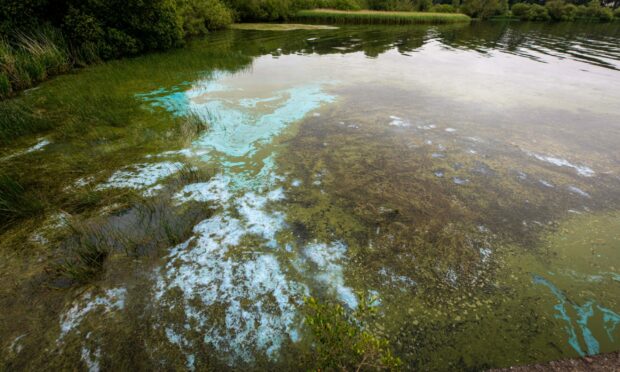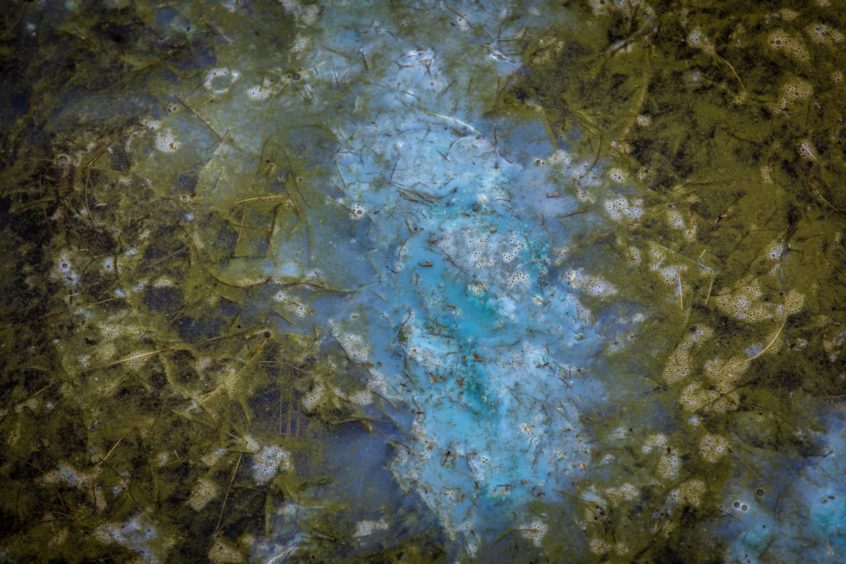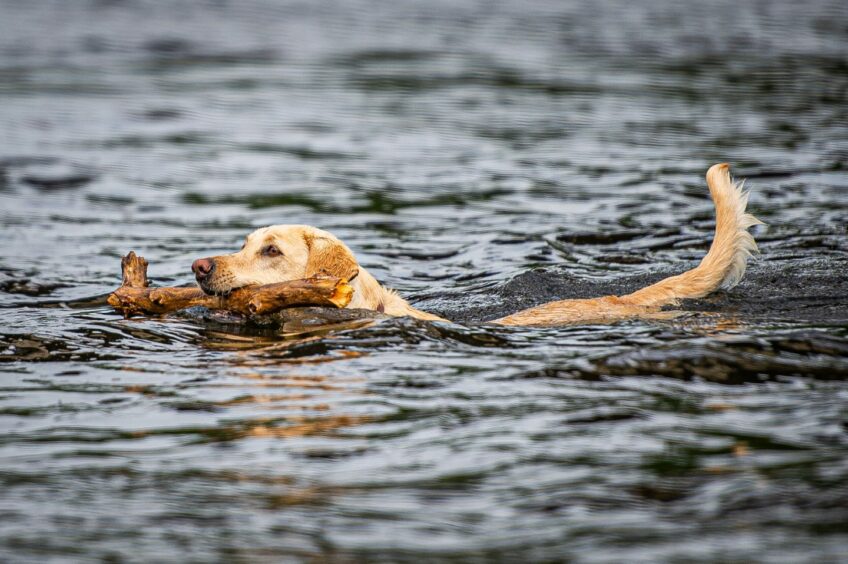Highland Council has issued a new blue-green algae warning for pet owners.
The local authority is advising the public that Loch Watten, between Wick and Thurso in Caithness, should be avoided by pets and people.
Samples taken from the loch have indicated the presence of blue-green algae.
Due to the current period of prolonged warm weather, the risks of blue-green algae, also known as cyanobacteria, increases significantly.
Sometimes the blue-green algae can form blooms, which can release toxins into the water around it.
Especially vulnerable are ponds, lochs, streams, estuaries, rivers and canals.
The situation is currently being investigated by Highland Council’s environmental health department in partnership with NHS Highland’s public health department and wider colleagues.
Notices will be posted next to the loch with a warning that contact with the algal scum should be avoided.
A series of fatal cases
The algae can even prove fatal if enough contact is made.
Last week, a dog is believed to have died from the algae after swimming in the River Dee on Friday, August 13. It arrived at the vets “collapsed, salivating, fitting and struggling to breath”.
Meanwhile, Shetland Islands Council confirmed the toxic algae has also been detected in Clickimin Loch in Lerwick.
Town and Country Veterinary Group, which has six branches around Aberdeen and Aberdeenshire, has warned dog owners to “remain vigilant”.
Dogs are especially vulnerable as they often drink the water they swim in and groom themselves afterward.
However, the death of a dog at Haddo House and Country Park, which was suspected to be from the algae, was ruled out after the lake was tested and registered zero bacteria.
What should you do if you see it?
If you spot blue-green algae you should immediately report it to Scottish Environment Protection Agency (Sepa) or through Hydrology’s Blooming Algae app.
The best way will be to get in touch on social media as it is usually closely monitored.
Do not touch anything you might suspect of being blue-green algae. Dog owners must get their dog to a vet for treatment as soon as possible if they have swum in water that could be infected.
According to the UK’s largest organisation dedicated to dog health, The Kennel Club, it can kill dogs in five minutes.



Conversation